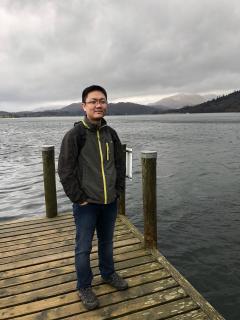Career Journeys: working in data science at a patent analytics firm
Chee Yee Lim shares how the skills from a Genetics degree are used working in data science at a patent analytics firm, as well as what the job entails.
| Name | Chee Yee Lim |
| Degree Course | BSc (Hons) Genetics |
| Year of Graduation | 2013 |

What path has your career taken since graduation?
At the end of my undergraduate study, I realised that my passion lies in using a computer to analyse the huge volume of data collected from biology experiments. As I was encouraged by my supervisors to do a PhD, I decided to do a PhD in Computational Biology that allows me to do what I love for three more years. Unfortunately (or perhaps fortunately?) at the end of my PhD, I decided that I still love using a computer to do data analysis and machine learning, but I couldn’t see my future self working in academia. So I transitioned into the commercial world and started my wonderful journey as a data scientist!
What is your current role and what does your work involve?
I am currently working as a data scientist at a patent analytics firm. The typical type of projects involve processing a huge amount of data to train various in-house models, such as natural language processing and computer vision models. These models let us extract unique insights from patent texts, which are then used directly to enhance our products for clients. I find these projects deeply exciting as it allows me to apply the latest research or tools in machine learning field to solve real-world problems both internally and externally for our clients.
How have you used the skills and/or knowledge developed during your degree in your career?
My job doesn’t require the knowledge (i.e. genetics and biology in general) that I have gained during my degree. However, the skills that I have gained in my undergraduate degree prove invaluable. It was during my undergraduate degree that I learnt how a computer can be used to analyse a huge amount of data gathered from experiments. To explore my interest in this direction further, I did an internship with Dr Andrew Rambaut at the Institute of Evolutionary Biology to build an influenza virus sequence analyser; and I arranged my final year project with Dr Tom Michoel at the Roslin Institute to analyse yeast genome. These two projects let me build up my programming and data analysis skills, which are two of the skills I need to use daily in my job.
What advice would you give to students who are interested in your area of work?
As people working or aspiring to be a data scientist would probably know, this is a field that is actively changing which requires constant learning and studying to catch up with latest research. A prominent technology three years ago may be completely obsolete now. So I would say, the spirit to continuously learn and gain new experience is more important than anything else. There are many resources, tutorials and courses online that can help with this. Besides building up technical skills, I would say it is also crucial to improve business understanding and to brush up on communication skill. Being a data scientist requires a keen eye to identify the most pressing and therefore high impact problems to solve in each business domain. Once you have a proposed solution, it requires a good communication skill to explain the often very technical solution to clients or stakeholders.

